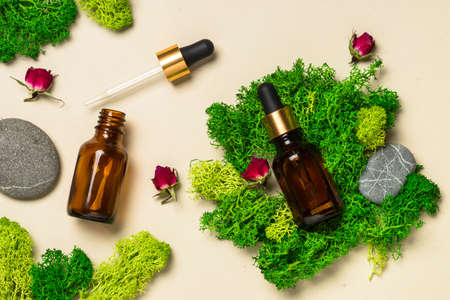Introduction to Sustainable Beauty in Britain
In recent years, the sustainable beauty movement has blossomed across the United Kingdom, reflecting a shift in how British consumers view their daily skincare routines. As awareness grows regarding environmental issues and personal wellbeing, more people are seeking out products that are gentle not only on their skin but also on the planet. This conscious approach to beauty centres around using organic skincare and eco-friendly practices, which are becoming increasingly important to individuals who value both self-care and sustainability. The UK has seen a remarkable surge in demand for natural ingredients, ethical sourcing, and minimal packaging—factors that resonate deeply with environmentally minded Britons.
According to recent studies, an increasing number of shoppers in Britain prioritise products that are cruelty-free, vegan, and packaged sustainably. This trend is not simply about following the latest fad; its a reflection of broader societal values where caring for oneself goes hand-in-hand with caring for the earth. For many, choosing sustainable beauty is about nurturing both skin and surroundings—a gentle yet purposeful step towards a brighter, greener future.
Sustainable Beauty Preferences in the UK |
Percentage of Consumers |
|---|---|
| Seek cruelty-free products | 65% |
| Prefer organic ingredients | 58% |
| Choose recyclable packaging | 72% |
| Avoid single-use plastics | 54% |
This gentle evolution in consumer habits highlights why sustainable beauty matters so much in Britain today: it reflects a heartfelt desire to protect both personal health and the cherished landscapes that define British identity.
2. Understanding Organic Skincare
In the heart of Britain’s sustainable beauty movement, understanding what truly makes skincare “organic” is essential. Organic skincare refers to products crafted from ingredients grown without synthetic pesticides, herbicides, or genetically modified organisms (GMOs). These formulations prioritise plant-based extracts, natural oils, and botanical actives that are as kind to your skin as they are to the environment.
Common Ingredients in British Organic Skincare
| Ingredient | Source | Skin Benefits |
|---|---|---|
| Rosehip Oil | Wild rose bushes (often sourced from UK hedgerows) | Rich in antioxidants and vitamins A & C, helps brighten and nourish skin |
| Aloe Vera | Organic aloe plants | Soothes irritation, hydrates and calms sensitive skin |
| Lavender Extract | Locally grown lavender fields | Calming aroma, anti-inflammatory properties |
| Shea Butter | Sustainably sourced shea nuts | Deep moisturisation, supports skin barrier function |
| Camelina Oil | British-grown camelina seeds (“Gold of Pleasure”) | Omega-rich nourishment for dry or mature skin types |
The Standards Defining ‘Organic’ in Britain
To be labelled as organic within the UK, skincare must meet rigorous standards set by certifying bodies such as the Soil Association and COSMOS. These organisations ensure that at least 95% of a product’s agricultural ingredients are organically produced. Additionally, organic certification guarantees strict environmental management practices, ethical sourcing, cruelty-free testing, and minimal use of artificial additives or preservatives.
Key Criteria for British Organic Certification:
- No synthetic fragrances or dyes permitted.
- No parabens, phthalates, or mineral oils allowed.
- Sustainable sourcing and fair labour practices required.
- Biodiversity protection throughout ingredient cultivation.
- Cruelty-free assurance – never tested on animals.
This careful attention to ingredient origin and environmental impact means that choosing certified organic skincare in Britain is not just a gentle act for your complexion—it also supports local ecosystems and responsible farming communities across the country.
![]()
3. Environmental Impact of Conventional vs. Organic Skincare
When considering sustainable beauty in Britain, its essential to explore how conventional and organic skincare products affect the environment. The ecological footprints of these two approaches differ greatly, not only in the ingredients themselves but also in packaging choices and sourcing methods—factors that are increasingly important for eco-conscious British consumers.
Comparing Ecological Footprints
Conventional skincare often relies on synthetic chemicals derived from non-renewable resources, extensive water usage, and energy-intensive manufacturing processes. These practices can result in pollution and harm to local ecosystems. In contrast, organic skincare prioritises natural ingredients grown without harmful pesticides or fertilisers, supporting biodiversity and soil health across the UK’s rural landscapes.
Packaging Approaches
Packaging plays a significant role in sustainability. Many conventional brands still use single-use plastics that end up in landfill or pollute British coastlines. Organic brands, however, tend to opt for recyclable glass, biodegradable materials, or minimal packaging to reduce waste.
Aspect |
Conventional Skincare |
Organic Skincare |
|---|---|---|
| Sourcing | Global supply chains; high carbon emissions; resource-intensive farming | Local British farms; reduced transport impact; sustainable agriculture |
| Ingredients | Synthetic chemicals; potential pollutants | Natural, biodegradable; gentle on waterways and wildlife |
| Packaging | Mainly plastic; limited recycling options | Glass, recycled paper, biodegradable materials |
| Waste Impact | Higher landfill contribution; microplastics risk | Lower waste footprint; compostable elements possible |
The shift towards organic skincare not only supports gentle skin nourishment but also aligns with a collective movement in Britain towards greener choices and mindful consumption. By making informed decisions about what we apply to our skin—and how it is produced—we can help protect the beautiful British environment for generations to come.
4. Local Sourcing and British Eco-Friendly Brands
One of the core principles of sustainable beauty in Britain is the emphasis on local sourcing and supporting homegrown, eco-friendly brands. By choosing skincare products that are made in the UK, consumers not only reduce their carbon footprint but also encourage a thriving market for ethical production practices. British brands have increasingly taken up the mantle of sustainability, committing to organic ingredients, cruelty-free testing, and packaging that minimises environmental harm.
Championing Sustainability: Leading British Brands
Several British skincare companies stand out for their dedication to eco-conscious values. These brands champion transparency in sourcing, use renewable energy where possible, and actively support biodiversity through their ingredient choices. Below is a comparison of notable British eco-friendly skincare brands and their sustainable initiatives:
Brand |
Sustainable Practices |
Local Sourcing |
|---|---|---|
Neal’s Yard Remedies |
Certified organic ingredients, carbon neutral operations, recyclable packaging | UK-grown herbs and essential oils |
Pai Skincare |
Certified organic by COSMOS, vegan-friendly formulas, minimal waste production | British-sourced botanicals and manufacturing |
Bamford |
Eco-conscious farm-to-face ethos, refillable bottles, solar-powered production | Cotswolds-grown plants and extracts |
Evolve Organic Beauty |
Handmade small batches, 100% recyclable packaging, cruelty-free certification | Locally sourced ingredients wherever possible |
The Benefits of Supporting Local Eco-Conscious Skincare
Choosing locally produced skincare not only helps lower transportation emissions but also ensures greater traceability of ingredients—giving peace of mind about product safety and quality. Moreover, supporting British eco-friendly brands strengthens the local economy and encourages more companies to adopt responsible manufacturing. Ultimately, these mindful choices lead to a healthier planet and a more radiant complexion for everyone.
5. Consumer Choices: Why Going Organic Makes a Difference
Choosing organic skincare isn’t just a personal indulgence—it’s a powerful way to shape the future of beauty in Britain. Every time you select an organic moisturiser or cleanser, you’re making a gentle yet meaningful impact on the environment and the local economy. Your decision sends a message to brands and retailers that sustainability truly matters, fostering a shift towards greener practices throughout the industry. Here’s how your choices help nurture both your skin and the planet:
Supporting Ethical British Brands
Opting for organic products often means supporting UK-based companies that prioritise transparency, fair labour, and eco-friendly sourcing. These brands are typically more mindful about their ingredient origins, packaging materials, and supply chain ethics.
| Conventional Skincare | Organic Skincare |
|---|---|
| May use synthetic ingredients Often imported from abroad Non-recyclable packaging |
Natural, plant-based ingredients Locally sourced where possible Recyclable or compostable packaging |
Reducing Environmental Footprints
Conventional skincare production can contribute to pollution and landfill waste. In contrast, organic brands in the UK frequently employ renewable energy, reduce water consumption, and minimise harmful emissions. By choosing these products, you’re directly reducing your carbon footprint and helping preserve Britain’s natural beauty.
Championing Waste Reduction
The move towards refillable bottles, biodegradable materials, and minimalistic packaging is gaining traction among British organic beauty brands. As a consumer, favouring such initiatives promotes less waste going to landfill and encourages further innovation within the sector.
Your Influence Matters
The collective effect of British consumers choosing organic skincare is significant. Not only does it spur ethical business growth and environmental protection, but it also inspires others to adopt conscious beauty routines. In essence, every purchase becomes an act of self-care for both your complexion and the world around you.
6. Simple Ways to Transition to Sustainable Skincare
Embracing sustainable beauty in Britain doesn’t have to be daunting or expensive. Making the shift towards organic skincare can be a gentle, rewarding process that fits seamlessly into your daily routine and British lifestyle. Here are some practical steps and tips to help you make this positive change:
Start Small: Swap One Product at a Time
Begin your journey by gradually introducing organic alternatives to your existing products. For instance, when your current moisturiser runs out, replace it with an organic option certified by reputable UK standards such as Soil Association or COSMOS.
Opt for Local British Brands
Support homegrown businesses that prioritise sustainability and ethical sourcing. Shopping locally not only reduces your carbon footprint but also encourages the British beauty industry’s commitment to eco-friendly practices.
Consider Packaging and Refills
Sustainable beauty goes beyond ingredients. Choose products with recyclable, reusable, or compostable packaging. Many UK brands now offer refill schemes or glass containers that can be returned or repurposed.
Comparison Table: Key Features of Sustainable Skincare Choices
| Action | Eco-Friendly Benefit | British Lifestyle Fit |
|---|---|---|
| Buying local organic brands | Reduces transport emissions, supports UK economy | Easily accessible in high street shops and farmers’ markets |
| Choosing refillable options | Lowers packaging waste | Many stores in the UK offer convenient refill stations |
| Using multi-purpose products | Minimises consumption and clutter | Saves time and space, ideal for busy lifestyles |
| Selecting certified organic skincare | Avoids harmful chemicals, protects wildlife | Aligns with British environmental values and regulations |
Adopt Mindful Shopping Habits
Read labels carefully and look for recognised certifications like Soil Association Organic or Leaping Bunny for cruelty-free assurance. Resist impulse buys; instead, invest in quality over quantity, focusing on what truly benefits your skin and the planet.
Create Your Own DIY Beauty Rituals
If you enjoy a hands-on approach, try crafting simple treatments at home using organic British ingredients such as oats, honey, or chamomile tea—perfect for a relaxing Sunday self-care session.
The British Way: Community & Sharing Knowledge
Sustainable beauty in Britain thrives on community spirit. Share tips with friends, join local workshops, or follow UK-based influencers who advocate for eco-conscious routines. Together, small changes can make a significant difference for both your skin and the environment.


